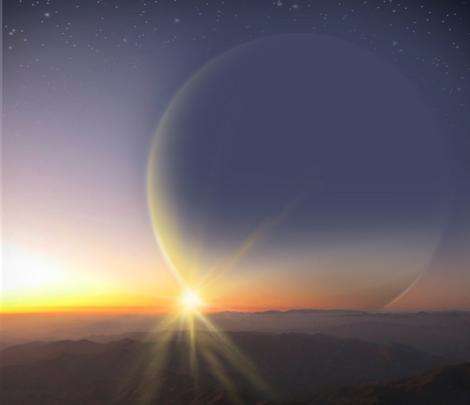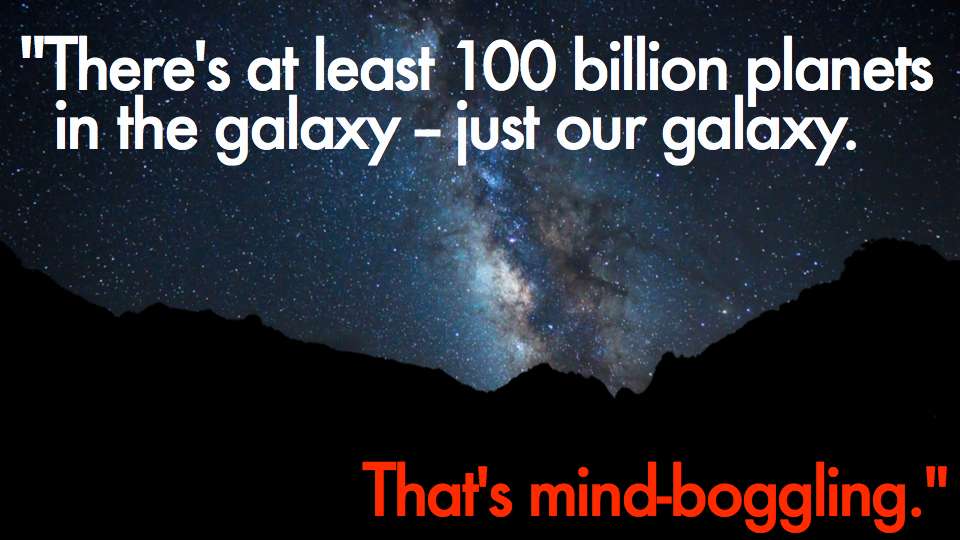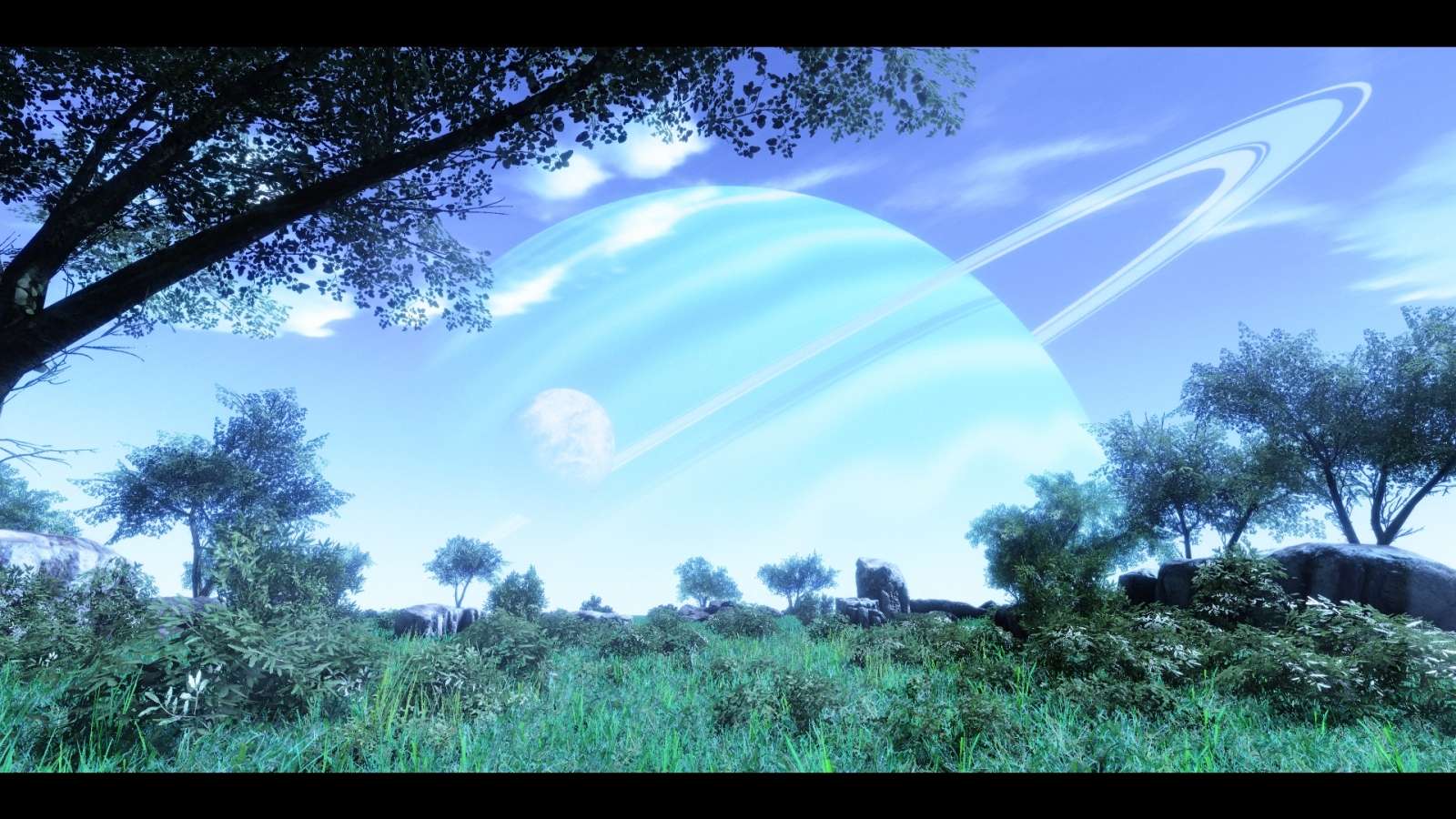It looks like you're using an Ad Blocker.
Please white-list or disable AboveTopSecret.com in your ad-blocking tool.
Thank you.
Some features of ATS will be disabled while you continue to use an ad-blocker.
4
share:
That's what said Lisa Kaltenegger of the Max Planck Institute for Astronomy in Heidelberg, Germany, and the Harvard–Smithsonian Center for
Astrophysics, during a September 2012 press conference in which European researchers announced the discovery of about 50 planets new to science.
There are now 854 exoplanets, or worlds orbiting distant stars, catalogued in the online Extrasolar Planets Encyclopaedia. And the catalogue is growing at an ever-increasing rate...

Artist's impression of the view from a moon around planet PH2b. (Credit: Haven Giguere)
The graph I've done below using the Extrasolar Planet Encyclopaedia data breaks down the 854 known planets by their year of discovery. The graph is cumulative; it shows the number of known planets up to and including any given year. The slope of the graph shows how quickly the pace of discovery has been ramping up: in 2009, 82 planets were found. 114 in 2010 and 189 in 2011. While 2012 saw a faint decrease of the discoveries (135), the very beginning of 2013 is promising by itself for the whole year:
Fifteen New Planets Hint at 'Traffic Jam' of Moons in Habitable Zone
NASA's Kepler Discovers 461 New Planet Candidates

A number of factors can help explain the field’s takeoff.
1- Technological innovation
Instruments such as the NASA Kepler spacecraft and the HARPS spectrograph on a European Southern Observatory telescope in Chile have brought dramatic improvements to astronomers’ extra-solar vision.
2- Manpower
Exoplanet research is now a popular field attracting large numbers of young researchers.
3- A simple snowball effect
Early exoplanet discoveries proved that it was possible to detect faraway worlds and prompted other researchers to get in the game.
Some sharp-eyed readers may notice that the graphs stretch back to 1989, whereas the exoplanet community generally refers to 51 Pegasi b, discovered in 1995, as the first exoplanet. The disparity comes from how one chooses to define a planet: Is a planet-size object orbiting a pulsar a planet? Is a giant world roughly a dozen times the mass of Jupiter a planet or a brown dwarf? The catalogue’s guidelines are fairly inclusive, as its curator explains here, meaning that some objects in the Extrasolar Planets Encyclopaedia will not meet every researcher’s conditions for planethood.

Now, what's next?
My best guess for 2013 is that it will sees:
1- A greater increase in the number of smaller-size planet ("Earth-size" or less) candidates and the number of stars with more than one candidate.
2- A greater increase of planets orbiting at habitable zone distances from the host stars, mainly due to the exact same three points I've listed above...
That could happen any day now.

Exoplanet "Eden" in Andromeda Galaxy
Not science-fiction anymore?
Related ATS threads:
A Newly Confirmed Planet and 42 Additional Planet Candidates
100 Billion Planets in our Galaxy ... at least ...
A major breakthrough for humanity en route
Deepest image of the universe ever taken - 5500 galaxies in 2 arcminutes in size!!
There are now 854 exoplanets, or worlds orbiting distant stars, catalogued in the online Extrasolar Planets Encyclopaedia. And the catalogue is growing at an ever-increasing rate...

Artist's impression of the view from a moon around planet PH2b. (Credit: Haven Giguere)
The graph I've done below using the Extrasolar Planet Encyclopaedia data breaks down the 854 known planets by their year of discovery. The graph is cumulative; it shows the number of known planets up to and including any given year. The slope of the graph shows how quickly the pace of discovery has been ramping up: in 2009, 82 planets were found. 114 in 2010 and 189 in 2011. While 2012 saw a faint decrease of the discoveries (135), the very beginning of 2013 is promising by itself for the whole year:
Fifteen New Planets Hint at 'Traffic Jam' of Moons in Habitable Zone
NASA's Kepler Discovers 461 New Planet Candidates

A number of factors can help explain the field’s takeoff.
1- Technological innovation
Instruments such as the NASA Kepler spacecraft and the HARPS spectrograph on a European Southern Observatory telescope in Chile have brought dramatic improvements to astronomers’ extra-solar vision.
2- Manpower
Exoplanet research is now a popular field attracting large numbers of young researchers.
3- A simple snowball effect
Early exoplanet discoveries proved that it was possible to detect faraway worlds and prompted other researchers to get in the game.
Some sharp-eyed readers may notice that the graphs stretch back to 1989, whereas the exoplanet community generally refers to 51 Pegasi b, discovered in 1995, as the first exoplanet. The disparity comes from how one chooses to define a planet: Is a planet-size object orbiting a pulsar a planet? Is a giant world roughly a dozen times the mass of Jupiter a planet or a brown dwarf? The catalogue’s guidelines are fairly inclusive, as its curator explains here, meaning that some objects in the Extrasolar Planets Encyclopaedia will not meet every researcher’s conditions for planethood.

Now, what's next?
My best guess for 2013 is that it will sees:
1- A greater increase in the number of smaller-size planet ("Earth-size" or less) candidates and the number of stars with more than one candidate.
2- A greater increase of planets orbiting at habitable zone distances from the host stars, mainly due to the exact same three points I've listed above...
Planethunters lead scientist Professor Debra Fisher of Yale University said: "We are seeing the emergence of a new era in the Planet Hunters project where our volunteers seem to be at least as efficient as the computer algorithms at finding planets orbiting at habitable zone distances from the host stars. Now, the hunt is not just targeting any old exoplanet - volunteers are homing in on habitable worlds."
Lead author Dr Ji Wang, also of Yale University, said: 'I can't wait for the day when astronomers report detecting signs of life on other worlds instead of just locating potentially habitable environments."
That could happen any day now.

Exoplanet "Eden" in Andromeda Galaxy
Not science-fiction anymore?
Related ATS threads:
A Newly Confirmed Planet and 42 Additional Planet Candidates
100 Billion Planets in our Galaxy ... at least ...
A major breakthrough for humanity en route
Deepest image of the universe ever taken - 5500 galaxies in 2 arcminutes in size!!
edit on 7-1-2013 by elevenaugust because: (no reason given)
Exoplanet "Eden" in Andromeda Galaxy
Very cool. If the earth and folks on it never get blowed up. I wonder if we'ed ever beable to travel 2.2 million light years to Andromeda. I mean jeeeze, we'ed have to explore all the 200 billion or more planets in our galzxy first, right? It is just to mind blowing! So much space!
This is pretty exciting. If going to the moon was a giant leap for mankind, then finding evidence of life in a different solar system would be like
running a marathon for mankind.
Many of these planets are surely to have moons which arent detectable yet that could also have life, or maybe even both the planet and its moon. What used to seem like science fiction seems more probable every day.
Many of these planets are surely to have moons which arent detectable yet that could also have life, or maybe even both the planet and its moon. What used to seem like science fiction seems more probable every day.
new topics
-
CIA is alleged to be operat social media troll frms in Kyiv
ATS Skunk Works: 18 minutes ago -
Rainbow : Stargazer
Music: 55 minutes ago -
I sleep no more.
Philosophy and Metaphysics: 3 hours ago -
Canada caught red-handed manipulating live weather data and make it warmer
Fragile Earth: 3 hours ago -
Why Files Our Alien Overlords | How We Secretly Serve The Tall Whites
Aliens and UFOs: 4 hours ago -
Curse of King Tuts Tomb Solved
Ancient & Lost Civilizations: 6 hours ago -
What allies does Trump have in the world?
ATS Skunk Works: 6 hours ago
4
